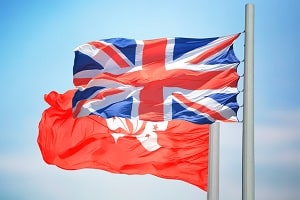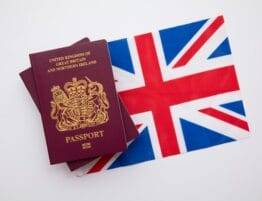
21 June 2020
Hong Kong has been in the media a lot recently. Formerly a British colony, it is now part of China – well, more or less, but under the Handover Agreement made with the British in 1997 it would retain many features of its western-style governance and institutions. This scheme is often described as “one country two systems”.
It is fair to say that it has worked well for a good few years. Certainly, for example, the Hong Kong justice system is still widely respected, even in mainland China, and Hong Kong has thus far remained a vibrant commercial area.
But, as we know from the media, this political state of affairs is now under threat. China now wants to assume stronger legal powers over Hong Kong, and the British Government considers that this aspiration would be a breach of the Agreement. Many Hongkongers, who are used to a relatively liberal style of government, fear for the future.
Remarkably, the British Prime Minister has made a sort of counter-threat to the Chinese Government. If they go ahead with their plans then the British Government will give large numbers of Hongkongers the right to come easily to the UK, work and eventually settle.
One of the ways in which this has been justified is that Hongkongers are industrious, enterprising and generally clever, and they would make a good contribution to the UK economy if they came here. And of course the corollary of this is that China would lose all these excellent people, and the Chinese economy would suffer accordingly.
Keen students of English history will be reminded of the French Protestant Huguenots, who in times gone by were persecuted for their religion. Many of them escaped to England, where they could practise their religion safely and, in the process, they brought great benefits with their industrial craft skills.
Anyway, leaving aside the interesting historical similarities and any potential political problems with the Prime Minister’s announcement, what does UK immigration law say on the subject? Many Hongkongers – about three million – hold “British National (Overseas)” status. (For some reason that we have never really understood “Overseas” generally comes in brackets.) They, like lots of other people in the world, are entitled to hold something that looks just like a British passport.
But it does not do all the things that a full British passport – as held by a British citizen – does. As everybody knows, a full British passport enables the holder to come and go from the UK without restriction or hindrance.
But the BN(O) passport -as it is commonly known – does not. BN(O) status confers on the holder the privilege of being a non-visa national (ie they do not need a visa to visit the UK for up to six months) and it also confers eligibility for the Tier 5 Youth Mobility Scheme if the applicant otherwise qualifies. It also confers Commonwealth citizen status – which might perhaps be useful in some cases.
But that is it, and BN(O)s are not deemed to be EU nationals, so they cannot take advantage of EU free movement law.
Clearly, the BN(O) passport is nowhere near as strong as a full British passport, and the associated advantages are in any case in one sense limited. It is no longer possible to acquire BN(O) status: the closing date to apply for it was in 1997, so there will not be any new BN(O)s.
To make things a bit more complicated, some other Hongkongers hold “British Overseas citizen” status, which of course is quite different. Rather than subject innocent readers to the Byzantine intricacies of British nationality law, suffice to say that neither does this status confer very strong benefits either.
But, in line with the Prime Minister’s sentiments, the Home Office has recently announced that it will “explore options” for BN(O)s to qualify for “extendable” 12-month visas.
But even if this did happen it would not be a comprehensive solution. Many Hongkongers – and especially younger ones born after 1997 – do not hold BN(O) status, and they cannot get it now.
So those who want to move on from Hong Kong and come to the UK may need to think laterally, and there are various other potential options. The Tier 1 Entrepreneur scheme is now closed to new entrants but the Start-Up and Innovator visas are, after a shaky start, beginning to establish themselves. The Representative of an Overseas Business visa is a well-tested route, and very suitable for some migrants in some situations. And there may be other options as well.
We at Garth Coates Solicitors can give you informed advice about these issues.









